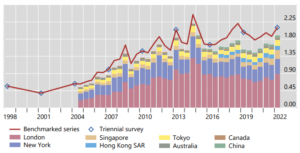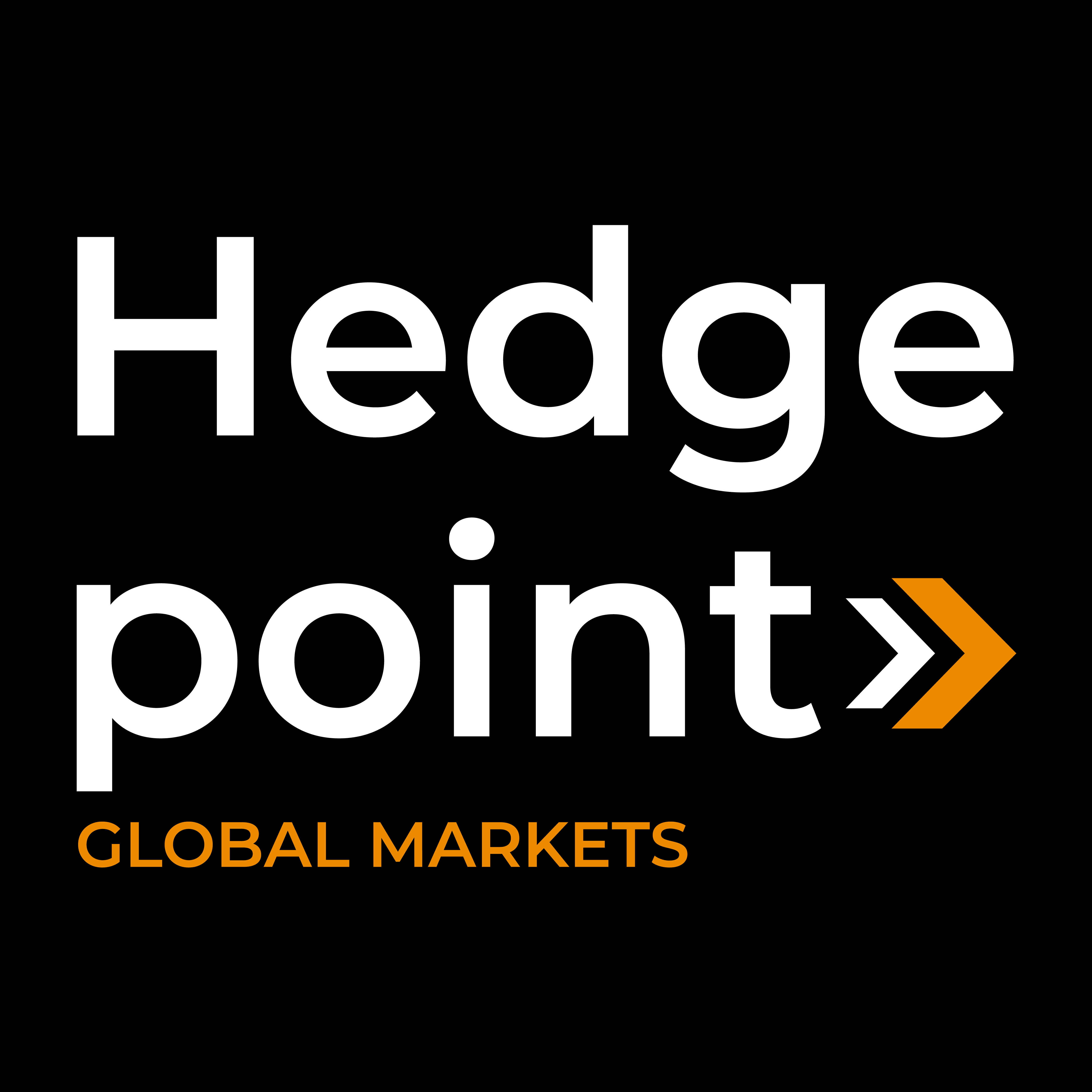Foreign Exchange Market: A Journey for Global Investments
The foreign exchange market, also known as FOREX (foreign exchange), is a global system for trading foreign currencies. Its network of financial centers is open 24 hours a day and closes only on weekends.
In practice, the foreign exchange market uses national currencies, such as the Brazilian real or the US dollar, to convert the value of international transactions. For example, when importing and exporting assets, products are traded in different currencies and the exchange system prices the exchange value between each of them.
In this article, we’ll understand how this market works, its most common operations, and the role of foreign exchange in the global economy. Read on!
How do currencies work in the Forex market?
To understand the foreign exchange market, you also need to know how quotes work. In the world, foreign currencies have specific values in relation to each other. This means that each one has a different purchasing power, depending on the economic fundamentals of its country. Interest rates, inflation, political events and supply and demand are some of the factors that determine the price of a currency.
To quote a currency in the market, you must always compare its value to another currency. For example, an American farmer who needs to receive dollars may need to understand how much he should charge a Brazilian importer who has reais. In this case, the exchange rate determines how many units of reais will be paid for one unit of dollars.
On July 16, 2024, the Central Bank of Brazil (BCB) published that the value of this transaction, according to the PTAX rate, would be 5.4268 reais at the buying rate for each dollar, and 5.4274 reais at the selling rate. The difference in price between one currency and another is known as the exchange rate.
Read also:
- The development of the bioenergy market in the world
The above example shows a floating exchange rate, which changes according to the supply and demand of the currency, inflation, interest rates, as well as the economic fundamentals of the country. However, in each country’s economic policy, each central bank can adopt other exchange rate regimes such as: fixed, controlled and multiple.
The first is controlled by the central bank, which sets a fixed value for a currency to maintain its economic stability. The second allows a currency to fluctuate in value within a certain range. The limits of this range are also controlled by the central bank. Finally, multiple rates are used in commercial transactions to facilitate the monitoring of funds.
Understand what exchange rate policy is
In a market with fluctuating prices, there are government or banking instruments that seek to control the value of a country’s currency in relation to foreign currencies. These measures are taken to stabilize the domestic economy, since the devaluation of its currency can cause commercial losses, as well as social and economic repercussions.
Exchange rate policy affects the inflation of a nation’s currency, as well as import and export prices. More than that, it also changes the national economy, its competitiveness in the market and its financial stability. Generally, exchange rate policy is applied through the control of capital flows, tax breaks, monetary measures and more.
Read also:
- What to expect from the La Niña phenomenon in 2024?
Foreign exchange market: the main players and the most common operations
The foreign exchange market is influenced by various institutions and entities. Central banks and commercial banks are the most important, as they can influence exchange rates, create monetary policies or intervene directly. On the website of the BCB, you can also see the banks that are authorized to operate in the foreign exchange market.
In addition to them, there are other players who play a fundamental role in the foreign exchange system. Let’s look at them all and understand what their most common operations are. These players are part of two structures in the Forex market. The primary one refers to transactions made by tourists, importers and exporters. The secondary market refers to transactions between banks.
See below:
Foreign Exchange Brokers
- Companies responsible for arranging transactions between customers and banks. They can be used by people who travel abroad and need to exchange their local currency for the currency of the destination country. Their activities can affect market supply and demand.
International banks
- Institutions that handle personal transfers across borders. They generally send and receive money from abroad to pay for services and products on an international scale.
Importers and exporters
- Importers and exporters conduct commercial transactions with other nations to buy and sell assets between them. They are institutions that make extensive use of the foreign exchange system in their international relations and agreements.
- Products (such as agricultural commodities) are traded in this way to supply the world’s population, highlighting the importance of foreign exchange operations in the global economy.
Hedging firms
- Institutions that engage in foreign exchange hedging: protection against financial risks that may occur in the foreign exchange market. This can be done with futures contracts, forward contracts and more. The goal is to control the losses that fluctuations in the price of a foreign currency can cause for players.
Investors
- Investors are major influencers in the Forex market, as they invest directly in foreign currencies, speculate on their appreciation, and negotiate with banks. They typically have a diversified portfolio and use applications such as exchange traded funds and futures contracts.
Levels of the Foreign Exchange Market
The participants mentioned above operate at different levels of the Forex market. Understand each of them:
Spot Market
- The most basic level, which is aimed at the quick exchange of currencies at the current exchange rate. It is most often used by individuals making immediate payments or exchanging currency for use in tourism.
Forward Market
- A more complex level of the market that allows currency trading. Preliminary agreements can be made with a future date to reduce the exchange rate difference between currencies and manage possible financial risks (hedging). Used mainly by the largest market participants, such as importers and exporters.
Derivatives market
- Widely used by hedging companies that use derivative products to trade securities, such as futures contracts, options, etc. These are more advanced tools that can offer even better exchange rates.
Market movement data
Now that you understand the structure of the foreign exchange system, let’s take a look at how this market moves around the world. According to the Bank for International Settlements (BIS), the main financial centers operating in this sector are
- London (LD4);
- New York (NY4);
- Tokyo (TY3);
- Singapore (SG1).
According to the institution, trading activity in the foreign exchange market tends to peak when trading hours in London and New York overlap. This occurs in the late afternoon in New York and in the early morning in Asia. During its operation, the financial centers trade more than 50 currencies, and the U.S. dollar is considered the vehicle currency. The USD accounts for nearly 90% of all global foreign exchange transactions, with the euro (EUR) and the Japanese yen (JPY) a distant second and third.
According to the central bank’s latest Triennial Survey of Foreign Exchange and Derivatives Market Activity, the average daily trading volume in the spot market has been increasing for many years. See the table below, calculated in trillions of US dollars:

Source: BIS
The data show that trading on the spot market is concentrated in large financial centers such as London, which accounted for 38% of transactions in 2022. The new Triennial is due to be published 3 years after the last one, but the influence of these major players is still expected in the next studies.
What is the role of hedging in this context?
As we’ve seen in this article, currency prices continue to fluctuate. Various factors are responsible for this fluctuation and it is an inherent characteristic of this market.
It is essential for traders to protect themselves from price volatility by using hedging tools to manage risk. Hedgepoint offers hedging instruments combined with data analysis and insight for all those involved in this market.
Contact us to find out how we can help your business!
Disclaimer






